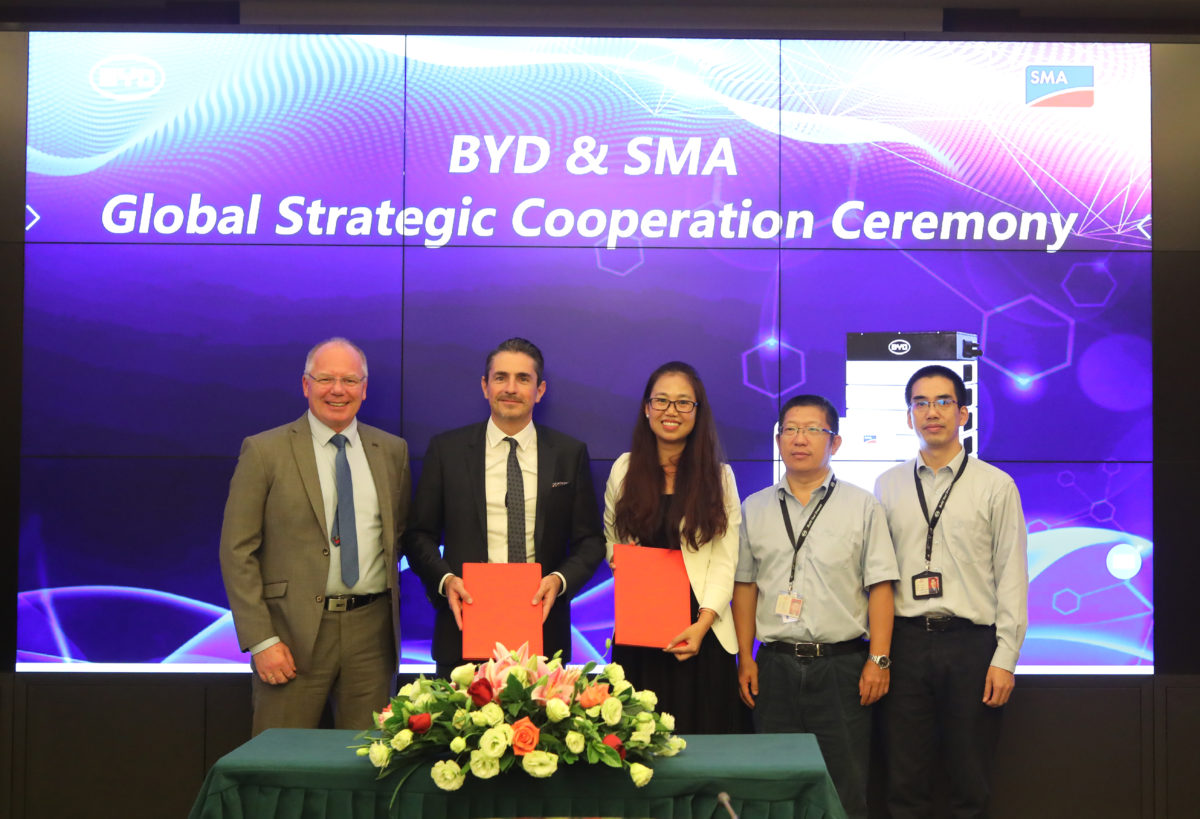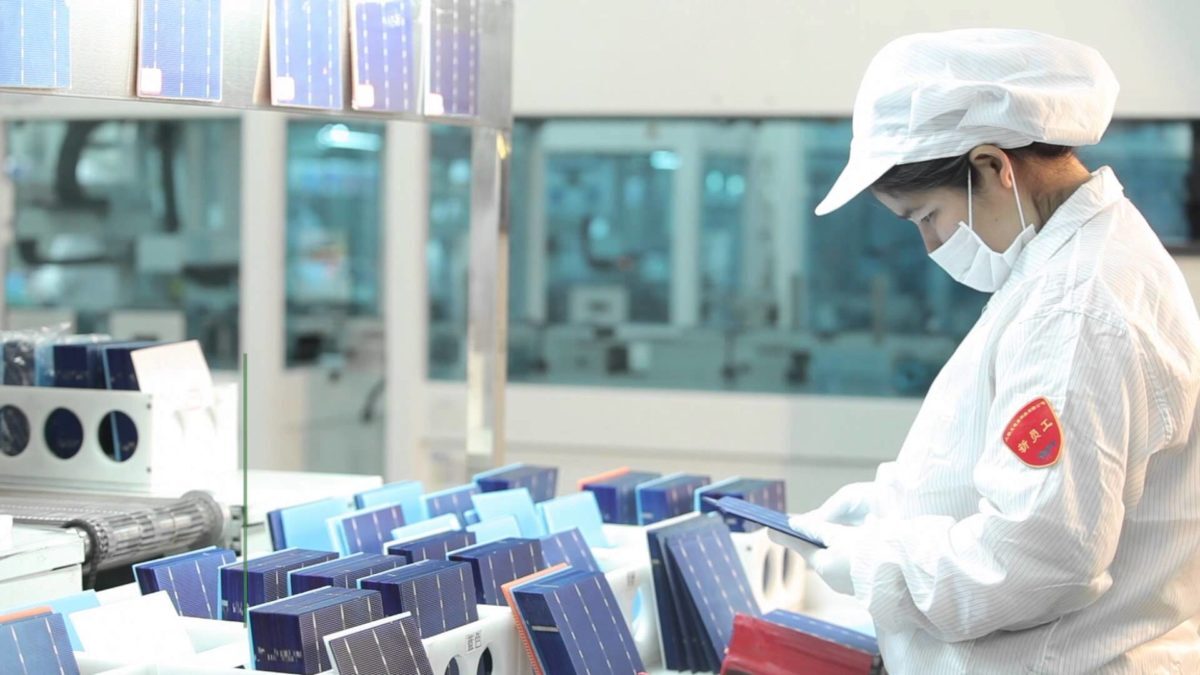A collaboration between Chinese battery supplier BYD and German inverter maker SMA has been sealed in Pingshan, in Shenzen, China, at the former's headquarters.
The partners say they have already successfully cooperated in European and Asia-Pacific markets and will continue to integrate their products for the U.S. and African regions, which show high growth potential.
In 2015, SMA and BYD started their co-operation with low-voltage storage systems and island inverters for off-grid applications. Two years later, that expanded to high-voltage storage systems and storage inverters, designed to increase self-consumption.
The companies are now looking to integrate their solutions further, into the residential and commercial energy storage market in the U.S. The companies say their off-grid knowledge can also help them tap the African market.
Nick Morbach, Executive Vice President of the Residential & Commercial unit at SMA, said: “After the successful collaboration in the past years, it was a logical step to expand the partnership for international co-operation, in which we will offer complete system solutions to our international customers. Based on SMA’s new energy management platform – ennexOS – these solutions will enable [the] owners of residential and commercial PV systems to connect battery systems with PV and other energy sectors, and secure highly efficient operation, thus providing for maximum energy cost savings.”
Intense inverter competition
Market leadership in the U.S. was snatched by Solaredge from SMA this year, and the German manufacturer said it will not achieve sales and earnings targets, due to the fallout of China’s PV policy changes at the end of May. The abrupt decision to rein in solar subsidies has resulted in “enormous” surplus module and inverter capacities in China, a “steep decline in prices in all markets and segments”, and postponed projects.
Israeli inverter maker Solaredge has agreed to acquire a majority stake in Kokam Co. Ltd, a South Korean provider of lithium-ion battery cells widely used in energy storage, emergency power supply and electric vehicles.
SMA cites a Solar Energy Industries Association report, published in September, which stated the U.S. had installed 2.3 GW of PV capacity in the second quarter. In the next five years, the U.S. is expected to double its installed 58 GW of solar capacity and as of 2023, the country could see 14 GW of annual installations.
“This is a huge market potential which we’d like to address together with a trusted partner like SMA, to offer customers end-to-end solutions for all their energy storage demands,” said Julia Chen, Global Sales Director for BYD Batteries. “SMA is one of the most trusted brands in the market, and we have built a very successful partnership between our companies during past years.”
Storage and inverter partnerships
The two are not the only inverter companies to diversify their technology offering with strategic partnerships. A month ago, German manufacturer Kostal also announced a close collaboration with electric vehicle player BYD, citing better integration of inverters and battery storage.
As batteries and inverters take on ever more complicated and digitally enabled tasks, streamlined communication interfaces and architectures will be vital. Such partnerships will result in standardized system components that link inverters and batteries.
Previously, third-party providers integrated batteries and inverters into storage systems. Now, inverter and battery makers are singling out third parties for new solutions. In addition to hardware coupling, companies are likely to integrate digital energy management solutions. Since these continuously communicate between inverter and battery, standardized communications protocols and interfaces are required.
This content is protected by copyright and may not be reused. If you want to cooperate with us and would like to reuse some of our content, please contact: editors@pv-magazine.com.




By submitting this form you agree to pv magazine using your data for the purposes of publishing your comment.
Your personal data will only be disclosed or otherwise transmitted to third parties for the purposes of spam filtering or if this is necessary for technical maintenance of the website. Any other transfer to third parties will not take place unless this is justified on the basis of applicable data protection regulations or if pv magazine is legally obliged to do so.
You may revoke this consent at any time with effect for the future, in which case your personal data will be deleted immediately. Otherwise, your data will be deleted if pv magazine has processed your request or the purpose of data storage is fulfilled.
Further information on data privacy can be found in our Data Protection Policy.